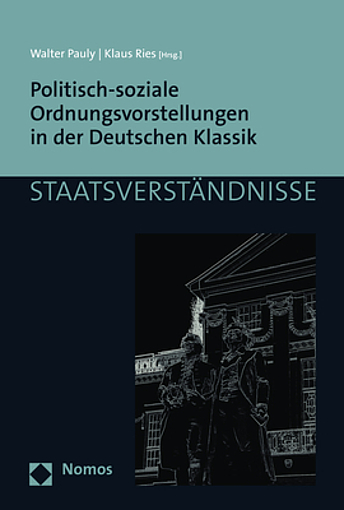englischOne of the clichés of literary studies is that ‘Deutsche Klassik’ (German classicism) was a construct and a phe-nomenon of interpretation. However, it also had ideological foundations and political overtones, which accom-panied the entirely normative idea of ‘classicism’. Towards the end of the 19th century above all, the German form of classicism was contrasted with the traditional French form in stylistic, cultural and political respects. In a similar manner to romanticism, classicism was portrayed as a typically German phenomenon, which estab-lished the 19th century as the ‘German century’, an ideological trap from which classicism was never really able to free itself.
This volume conducts a critical analysis on two levels. On the one hand, it examines how the so-called ‘classi-cists’ portrayed themselves as ostensibly politically abstinent and, on the other, it addresses the historical and political interpretation of classicism as a counter-revolutionary ‘German movement’.
With contributions by
Klaus Dicke, Norbert Eke, Markus Hien, Federica La Manna, Stefan Matuschek, Walter Pauly, Klaus Ries, Maurin Schunke, Alice Stašková and Ludwig Stockinger.
Es gehört zu den Allgemeinplätzen der Literaturwissenschaft, dass es sich bei der Deutschen Klassik um ein Konstrukt und Rezeptionsphänomen handelt. Hinzu tritt in diesem Falle eine mit dem durchaus normativ orientierten Prädikat „klassisch“ einhergehende ideologische Fundierung und politische Funktionalisierung. Vor allem gegen Ende des 19. Jahrhunderts findet sich die Klassik gegen die französische Tradition in stilistischer, kultureller und politischer Hinsicht in Stellung gebracht. Ähnlich wie dann auch die Romantik wird die Klassik als typisch deutsche Erscheinung ausgegeben, die das 19. Jh. als das „deutsche Jahrhundert“ einleitete und begründete. Aus dieser ideologischen Falle ist die Klassik nie so recht wieder herausgekommen.
In diesem Band geht es um eine doppelte kritische Prüfung: Zum einen der vorgeblich politikabstinenten Selbstinszenierung der sog. „Klassiker“ und zum anderen der geschichtspolitischen Rezeption der Klassik als einer gegenrevolutionären „deutschen Bewegung“.
Mit Beiträgen von
Klaus Dicke, Norbert Eke, Markus Hien, Federica La Manna, Stefan Matuschek, Walter Pauly, Klaus Ries, Maurin Schunke, Alice Stašková und Ludwig Stockinger.


